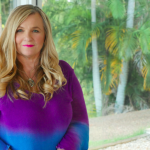Have your say: health and wellbeing of mature workers

In Australia, 60 per cent of involuntary retirements are the result of the need to manage poor health, for oneself or one’s family. The drivers of poor health are well known: what we need now is a solution. An ARC funded partnership of academics, Federal Government, and NGOs are concerned about the health and wellbeing of older workers.
We are asking for your help in developing solutions.
What role could, and should, individuals, workplaces, and governments play? We’d like to hear your views on who is responsible for solving this problem, and what you’d want to see done.
We’d like you to be involved in a Delphi study. We’ll interview you over the phone or however is convenient, play back what other stakeholders say, and then ask for your final reflections. As part of this study, you’ll hear new and up to date evidence, how other stakeholders see the problem, and be contributing your ideas on how to address the health of older Australians so they can stay productive.
The Delphi is part of a larger project called Working longer, staying healthy and keeping productive. To date we have found that:
- Longer lives don’t necessarily mean healthier lives.Australians born now can expect to live about 30 years longer than those born at Federation (1901), but this doesn’t mean 70 is the new 40. There are some whose healthy life expectancy has increased, but there is a large group whose poor health (often due to rising rates of obesity and chronic diseases) leaves the behind.
- Policy success depends on jobs and health now, and jobs and health in the past.It’s both now – and the past – that matter, because poor health drives people out of the workforce and this influence increases as people age. Jobs and health also interact and affect each other. The effects accumulate, so policy needs a preventative as well as current focus.
- Workplaces are critical:Even while work and health histories matter, what workplaces do is critical to how long older workers can sustain employment. Our case studies reveal strategies that succeed, those that do not, and that workplaces are asking for support from Government.
If you would like to take part in the Delphi, or would like to know more about taking part, please get in contact with Dr Jack Noone via j.noone@unsw.edu.au. We would really appreciate your time.
Dr Lyndall Strazdins is a Professor and ARC Future Fellow (PhD Psychology, M Clinical Psych) at the National Centre for Epidemiology and Population Health, the Australian National University. She is the Lead Investigator of the ARC Linkage Project, Working Longer, Staying Healthy, Keeping Productive, which examines the ways in which health, economic, and social vulnerabilities impact older workers’ ability to remain in the workforce as they approach retirement age, and what employers and policy makers can do to facilitate their labour participation.








